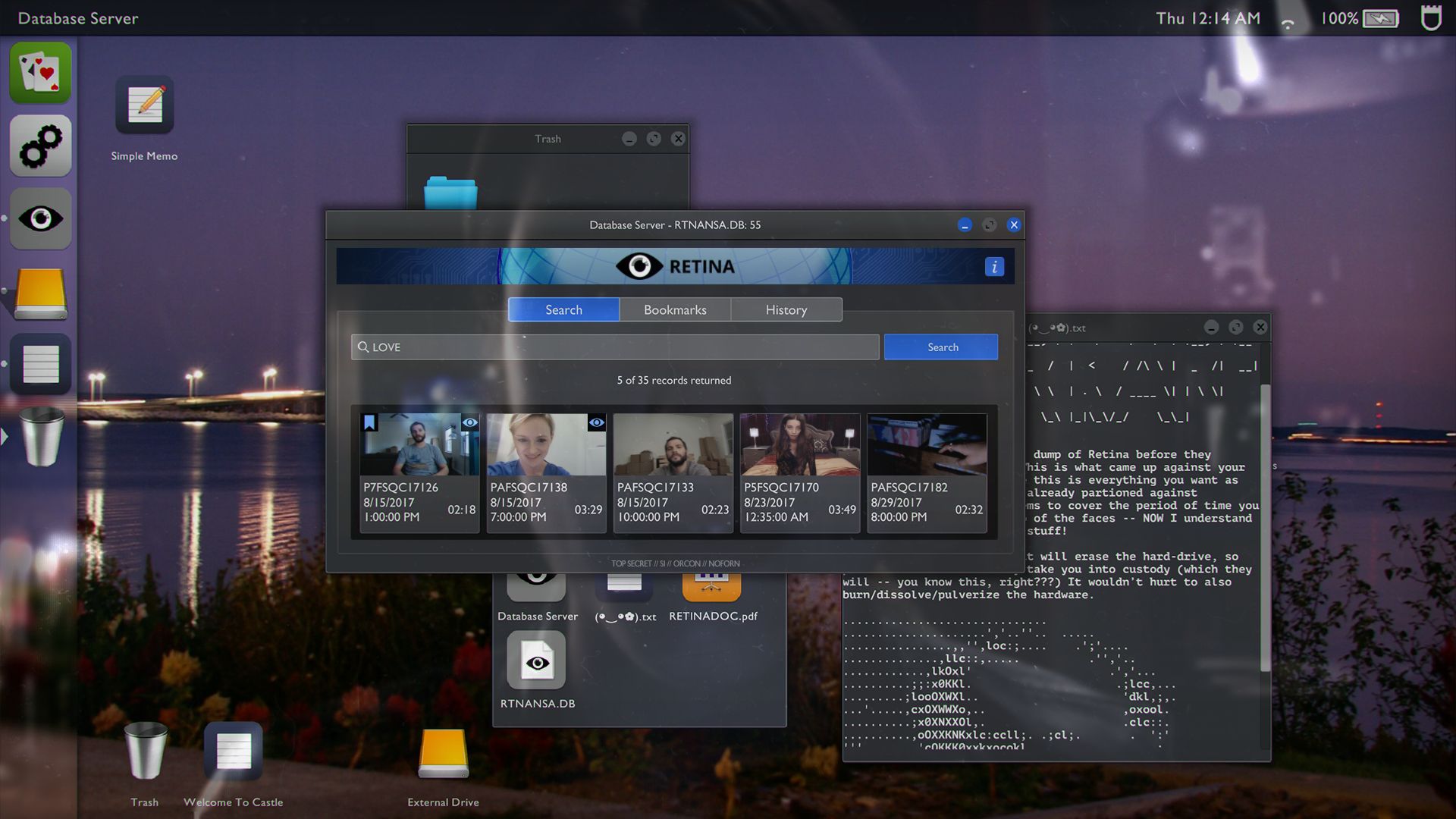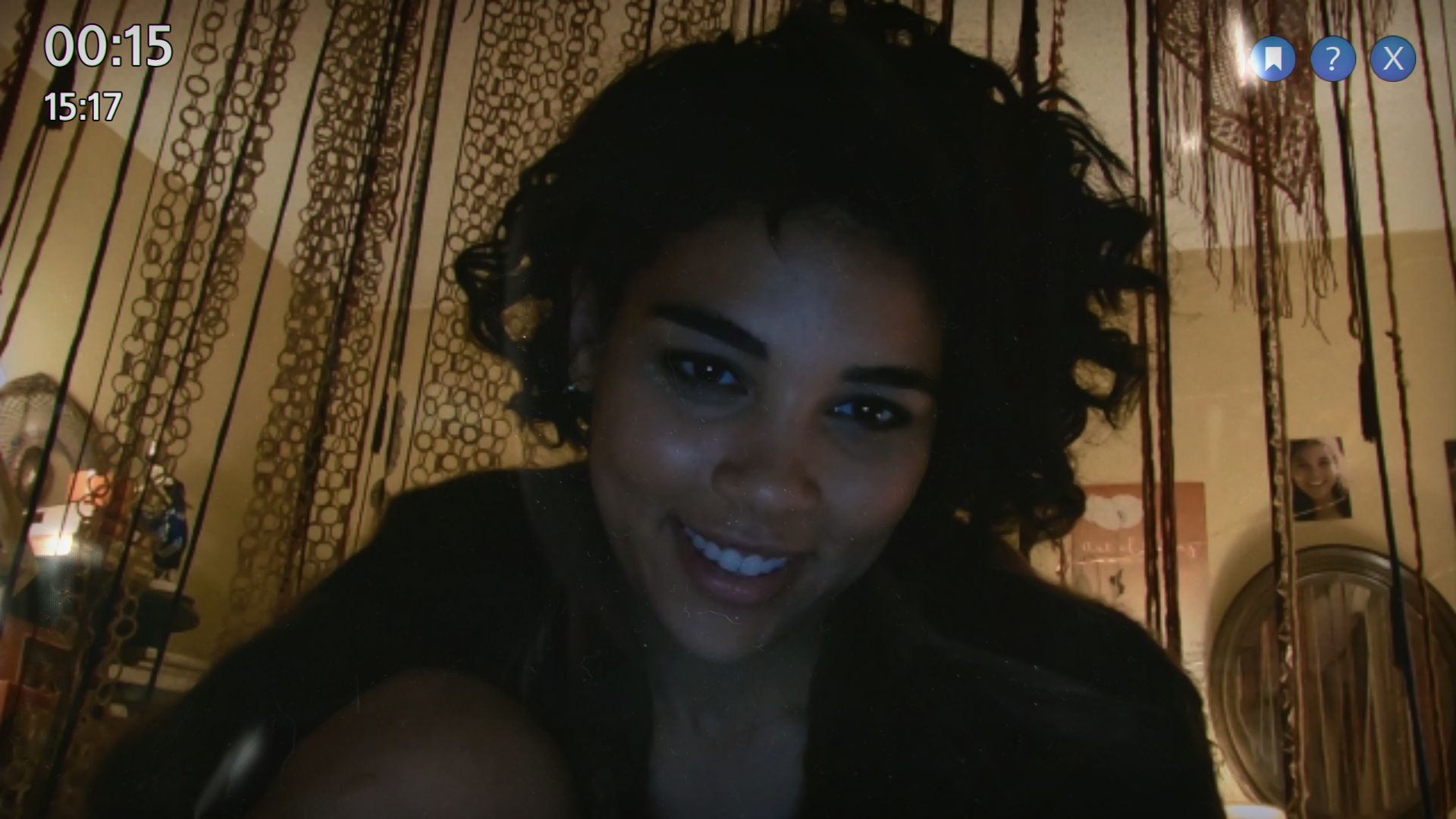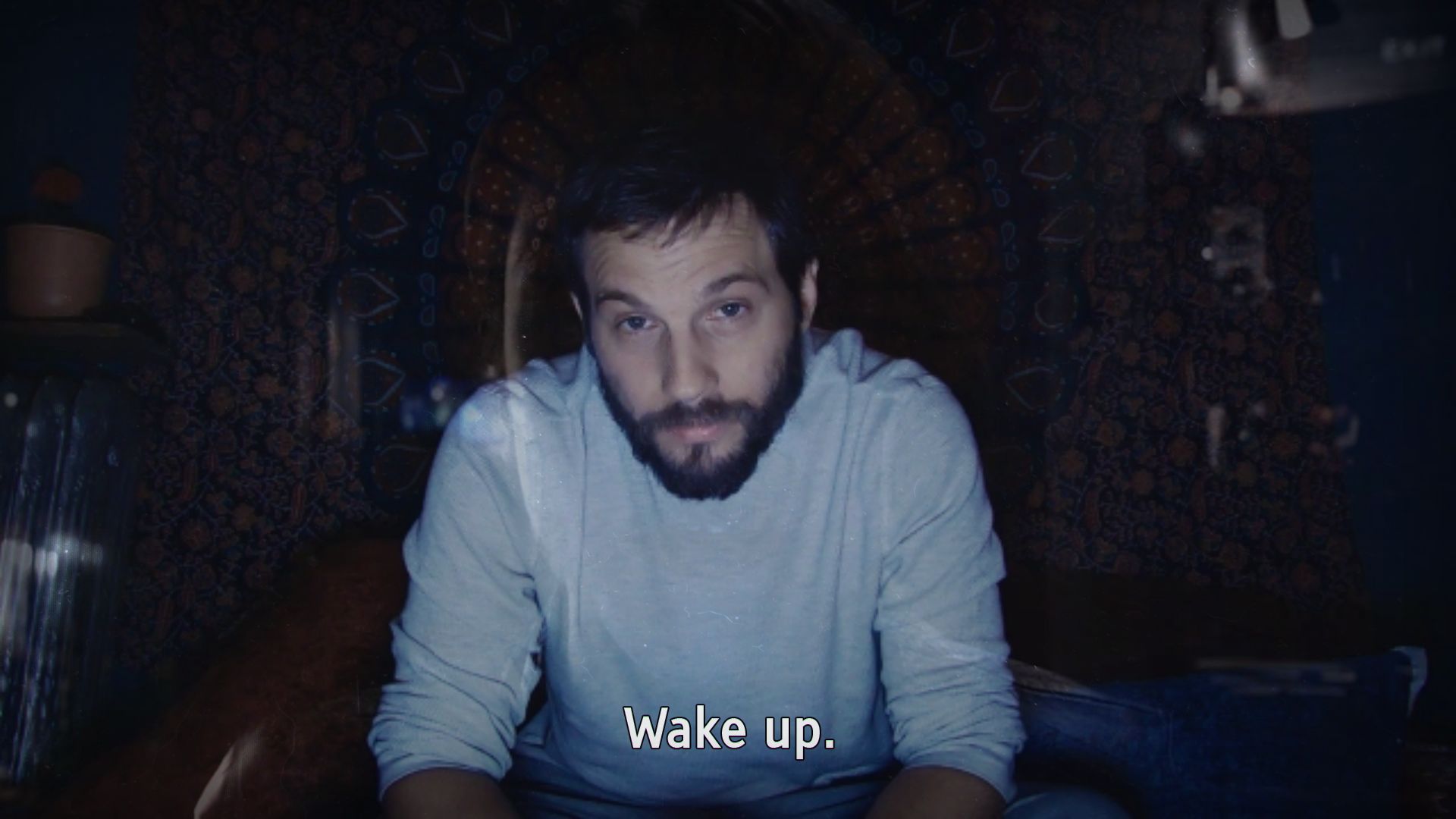See the first teaser for Telling Lies, the next game from the creator of Her Story
Sam Barlow goes from murder mystery to a wider conspiracy about spying, betrayal, and intimacy.
The trailer for Telling Lies, Sam Barlow's follow-up to Her Story, makes it obvious this is another FMV game—but one on a much larger scale, and with a much bigger budget. There are four main characters this time—all recognisable mainstream actors—and the player will be watching and interacting with them in a world much larger than a police interrogation cell. "We put a lot of money into our engine so now we can render more than one character on screen," Barlow jokes. "We can do exteriors, you know. Trees."
This time the main characters aren't being interviewed by a detective. They've been spied on, and the footage is their own. It's personal recordings and online conversations, all collated by a government organisation and then hijacked by someone else thanks to a stolen hard drive. "The opening establishes the frame story," Barlow explains. "It's set [in the] current day, it's night, you see this woman run out of a car into a darkened apartment in Brooklyn. She opens up a laptop, she takes out this hard drive she has on her, she plugs it in, and she has this stolen copy of an NSA database."
I finished Her Story and didn't immediately want to do a direct sequel, which my accountant thought was a more sensible thing to do.
—Sam Barlow
While researching the idea for his game, reading about Optic Nerve—a program used by British surveillance agency the GCHQ to intercept images from Yahoo webcam chats—and similar ways security services like the NSA and MI5 record people, Barlow noted an obvious similarity in the way people's data was stored. "It was fucking Her Story," he says. "They have all these video clips, they're tagged and indexed."

Because the recordings are personal ones, the experience of sifting through them will feel quite different to that of pulling apart interrogation videos to solve a murder. "Similar to Her Story you're searching through it, picking up on threads, names, events, places, turns of phrase. But you get this additional fun layer because for me this is very much about relationships, very much about domestic spaces. Intimate moments, people in bedrooms talking to each other, pillow talk, late-night conversations between people, family stuff."
Barlow has made Telling Lies bigger than Her Story by, he estimates, four or five times. And as well as being longer in duration, it'll have even more density. He says it's been a harder game to make (he has several collaborators and a co-writer this time), but for Barlow that's part of the appeal. "Her Story had one speaking role," he says (played by Viva Seifert). "I think we had 30 or 40 various speaking roles in [Telling Lies]. It takes place over a two-year period, so there's a lot more—it spans time and space in a way that's very different from Her Story and is very interesting.
"I finished Her Story and didn't immediately want to do a direct sequel, which my accountant would probably have thought was a more sensible thing to do. Some people were like, 'Just do another one with a different person in a seat, and it's a different crime. Loved it, do it again'. But I need something to be exciting and risky and weird to be interesting to me."

Where Her Story was a murder mystery that became a psychological profile of a single, compelling character, Telling Lies explores a group of characters with intertwining narratives, and does so without the impetus of solving a murder to push the player forward. "The thing I liked I liked about Her Story was the hook is 'you get to be a detective' but a ways in you kind of have an idea of roughly what happened," says Barlow, "and the majority of the experience then is digging into this weird, gothic backstory of this character.
The biggest gaming news, reviews and hardware deals
Keep up to date with the most important stories and the best deals, as picked by the PC Gamer team.
"[Telling Lies] is very much me looking at Her Story and going, 'I loved that bit, I loved that thing of digging into this character's life and feeling like there was some kind of very intimate dialogue that was going on.'"
We're spying on everything you do but it's to make you safe. We love you and we're one big family.
—Sam Barlow
The theme of privacy being invaded became more relevant to Barlow at the moment his son, who is 10 years old, got his own phone. "He's just on the periphery of social media and all that stuff," Barlow says. "He's very much early onset teenage years, but I have all his passwords. I know exactly what websites he's looking at, and as he gets more into the teenage world I'm still gonna be in there making sure he's safe and I'm tracking him, I can see if he's supposed to be where he is."

It is, he says, "super invasive" and made him think about the way that understandable parental worries become an actual nightmare when applied to the adult population of entire nations, with security organizations acting as the concerned parents watching over us while we sleep. "That metaphor gets used by governments who now use that same logic and say, 'Yes, we're spying on everything you do but it's to make you safe. We love you and we're one big family.'"
That hasn't stopped Barlow from, as he puts it, "NSA-ing my son." A parent's concern for their child justifies a degree of spying. "I've got to make sure he doesn't get turned into a Nazi by the YouTubers," he says with a laugh.
Telling Lies is being published by Annapurna Interactive later this year, and will be available on Steam.
With over two decades covering videogames, Tim has been there from the beginning. In his case, that meant playing Elite in 'co-op' on a BBC Micro (one player uses the movement keys, the other shoots) until his parents finally caved and bought an Amstrad CPC 6128. These days, when not steering the good ship PC Gamer, Tim spends his time complaining that all Priest mains in Hearthstone are degenerates and raiding in Destiny 2. He's almost certainly doing one of these right now.


